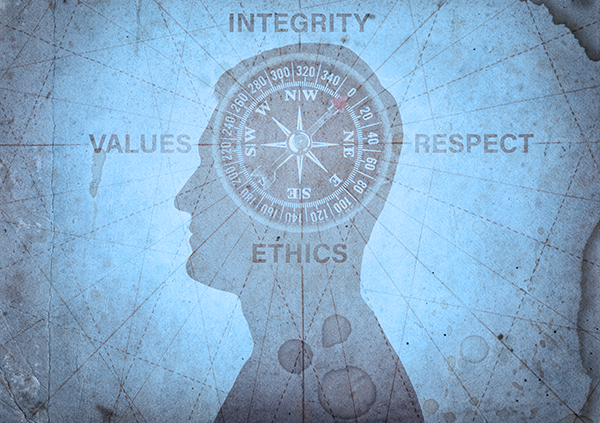Creating a supportive climate for research integrity is the next big challenge for the academic system

The lead author of the revised European Code of Conduct for Research Integrity, Dr Maura Hiney, elaborates on the key aspects of the new edition. In addition to her involvement in ALLEA. Dr Maura Hiney was chair of the Science Europe Working Group on Research Integrity during its remit, and is Head of Post-Award and Evaluation at Health Research Board (HRB) in Ireland, which includes the development of policy for the organisation.
Why was the revision of the European Code of Conduct for Research Integrity necessary? Could you give us a few examples of main new challenges covered in the revised version?
MAURA HINEY: The previous European Code of Conduct was developed by ALLEA and the European Science Foundation back in 2010. It was a very important document at the time, but much has changed in the intervening years that rendered it somewhat outdated and indicated a revision. I see three main areas of change. Firstly, even in the space of seven years, there have been significant changes in the research environment in Europe. With a recognition of the importance of the ‘knowledge economy’ many countries have increased the level of public funding for research, but have married that with increased targeting and prioritisation of research areas. There has also been an increased demand for application-driven research and for partnering with the enterprise sector.
“Even in the space of seven years, there have been significant changes in the research environment in Europe.”
Secondly, there have been many technology-driven changes for research and for how researchers interact and communicate their findings, which are sometimes collectively termed ‘Open Science’. Examples include: new publishing models to allow open access to publications; open publication platforms such as F1000 that are far broader in the content they will accept for publication and use post-publication peer review; increased demand for dissemination of research data through repositories and other platforms; and the advent of new social media tools to disseminate research findings outside of the peer-review system.
Thirdly, there have been societally-driven changes, with a more science-literate and interested public who want greater access to, and understanding of, the evidence unpinning many facets of their lives such as health and environment; the emergence of crowd funding of research and citizen science projects; and a greater appetite among the public for transparency and accountability in research following high-profile misconduct cases in many pillar institutions (banks, the church, the police etc.).
Together all of these changes are both very exciting and very challenging for the research community in terms of ensuring continued Good Research Practice, and there was a need to update the European Code of Conduct to reflect this.
So what is new in the revised Code of Conduct?
M. H.: Much of the existing Code of Conduct was preserved in the revision process. However, there were some important changes made. Readers will instantly notice that the revised Code of Conduct is much shorter and more concise, which the drafting group felt was very important if it is to be widely read and used. The revised Code takes account of the changes in the research environment and those driven by technology and society that have emerged since 2010. The Principles have been refined to isolate the essential underpinning values of research, with more process-driven concepts moved to the appropriate section in the good research practices.
“The Code is written as a description of what IS done to ensure integrity in the research process, rather that what SHOULD be done, which can sometimes be interpreted as optional.”
The Code of Conduct includes a number of important innovations. The Code is written as a description of what IS done to ensure integrity in the research process, rather that what SHOULD be done, which can sometimes be interpreted as optional. Research Environment is placed first among the good research practices, to stress the vital role that research institutions and organisations play in establishing, nurturing and supporting a climate of research integrity. The section on Training, Supervision and Mentoring is greatly expanded to reflect a growing understanding of the pivotal role that these play in improving the skills of researchers at all levels of their career, not just in research integrity and ethics, but also in design, methodology and analysis. Likewise, a new section on Collaboration reflects the increasing cross-disciplinary, cross-sectoral and cross-border nature of research activity.
The chapter on Violations of Research Integrity includes some important unacceptable practices which were not captured in the original Code. These underscore: the importance of publishing all data and materials that can contribute to reproducibility and replicability (not withholding results); the importance of disseminating negative results, which is now possible with the advent of open publishing platforms; and the importance of allowing researchers the independence to do their work without interference from funders or sponsors who might wish to enhance (or suppress) particular findings.
The ALLEA drafting group involved a wide range of stakeholders in the revision process. Could you tell us a little more about the consultation and how it contributed to come to a final revised version of the Code?
M. H.: The stakeholder consultation was a vital component of the revision of the Code. We chose, for practical reasons, to consult with representative organisations and associations for researchers (both established and emerging), universities, funding agencies, publishers, the enterprise sector and policy-driven groups and in total 22 of these stakeholder organisations became involved in the consultation process.
“We could not have produced a relevant and comprehensive revision of the Code of Conduct without this generous and intensive input from the research community in all its forms.”
This provided us with a wide range of perspectives on what a Code of Conduct should cover, but also helped to ensure that the Code would be widely applicable across Europe and beyond. We invited written submissions on both the original Code and where the gaps lay, and on a draft of the revised Code – both of which were mapped carefully and incorporated where possible and appropriate. The Stakeholder Workshop held in November 2016 in Brussels, and made possible by the European Commission, was a fantastic opportunity for us to hear at first hand about the ideas and challenges faced by the different stakeholders with regards to the Code. It also provided and opportunity for diverse groups to exchange ideas and reach a better understanding of each others challenges. Overall, we could not have produced a relevant and comprehensive revision of the Code of Conduct without this generous and intensive input from the research community in all its forms.
The competitive nature of the academic career system is often considered to increasingly disincentivise research integrity. What would you suggest to overcome this challenge and how might the Code of Conduct help tackle this issue?
M. H.: Yes, there is certainly a significant body of evidence to support the impact of competition for career advancement and funding on the behaviour of researchers. Unfortunately, as in any resource constrained system competition will remain a feature of the academic world. That is why I think that improvements in the research environment are so important.
“Unfortunately, as in any resource constrained system competition will remain a feature of the academic world. That is why I think that improvements in the research environment are so important.”
There is a growing body of evidence to demonstrate that providing a supportive climate for research integrity, from strong organisational policies and practices, to encouraging open discourse among colleagues about the challenges they face on a day-to-day basis, coupled with adequate training and mentoring, can enhance research integrity and ethical behaviour. Creating such a climate is the next big challenge for the multitude of actors in the academic system from research organisations, to funders, publishers, governments and of course the research community itself.
The European Commission will implement the Code as the required standard of research integrity for projects funded by Horizon 2020. In your view, how could the Code be applied and implemented on the national level in order to best serve the research community across Europe?
M. H.: Most European countries either already have, or are in the process of developing, national policies, guidelines or codes of conduct. Many of these used the original ESF/ALLEA European Code of Conduct as their starting point. I do not believe that a truly harmonised policy and regulatory environment across Europe is a realistic goal.
“The revised European Code of Conduct can continue to provide a common framework from which national and local codes and policies can be developed or updated to reflect current challenges.”
However, the revised European Code of Conduct can continue to provide a common framework from which national and local codes and policies can be developed or updated to reflect current challenges. This will be important in ensuring consistency at a high level and promoting a common understanding of what constitutes good practice in research. That can only benefit the European research community and enhance public trust in their research outputs.
A shorter version of this interview was published in ALLEA Newsletter of May 2017.


